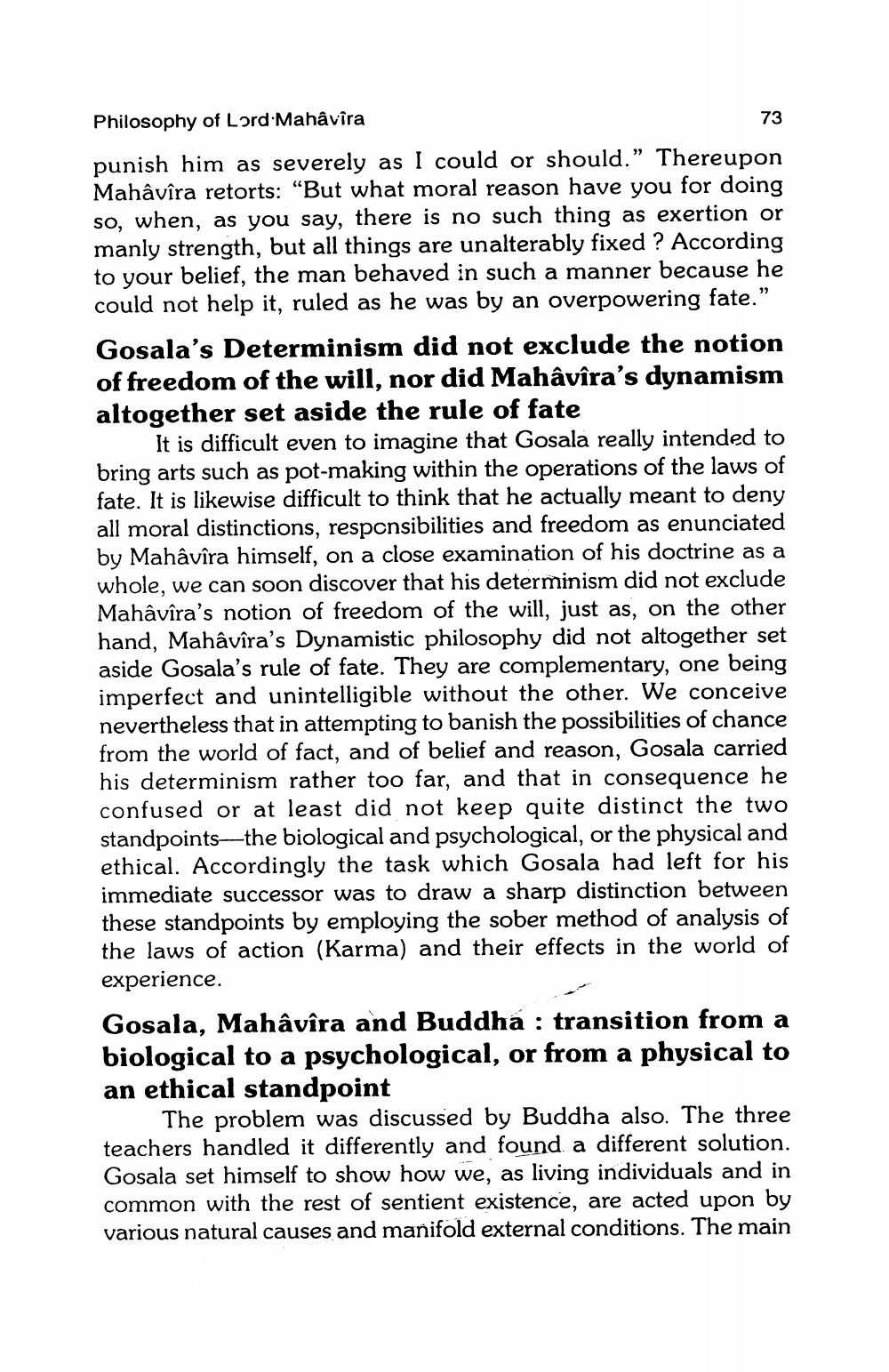________________
Philosophy of Lord Mahâvîra
73
punish him as severely as I could or should.” Thereupon Mahâvîra retorts: "But what moral reason have you for doing so, when, as you say, there is no such thing as exertion or manly strength, but all things are unalterably fixed ? According to your belief, the man behaved in such a manner because he could not help it, ruled as he was by an overpowering fate." Gosala's Determinism did not exclude the notion of freedom of the will, nor did Mahâvîra's dynamism altogether set aside the rule of fate
It is difficult even to imagine that Gosala really intended to bring arts such as pot-making within the operations of the laws of fate. It is likewise difficult to think that he actually meant to deny all moral distinctions, responsibilities and freedom as enunciated by Mahâvîra himself, on a close examination of his doctrine as a whole, we can soon discover that his determinism did not exclude Mahâvîra's notion of freedom of the will, just as, on the other hand, Mahâvîra's Dynamistic philosophy did not altogether set aside Gosala's rule of fate. They are complementary, one being imperfect and unintelligible without the other. We conceive nevertheless that in attempting to banish the possibilities of chance from the world of fact, and of belief and reason, Gosala carried his determinism rather too far, and that in consequence he confused or at least did not keep quite distinct the two standpoints—the biological and psychological, or the physical and ethical. Accordingly the task which Gosala had left for his immediate successor was to draw a sharp distinction between these standpoints by employing the sober method of analysis of the laws of action (Karma) and their effects in the world of experience. Gosala, Mahâvîra and Buddha : transition from a biological to a psychological, or from a physical to an ethical standpoint
The problem was discussed by Buddha also. The three teachers handled it differently and found a different solution. Gosala set himself to show how we, as living individuals and in common with the rest of sentient existence, are acted upon by various natural causes and manifold external conditions. The main




